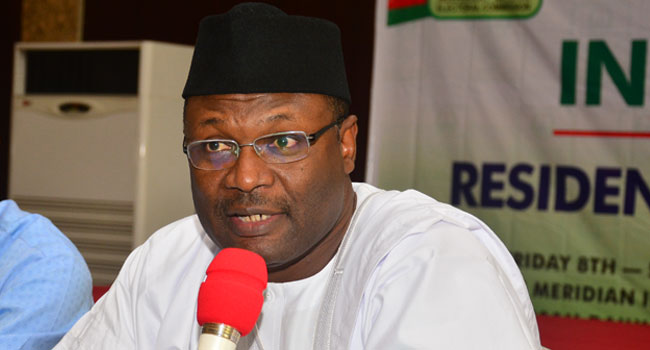As preparation for the 2023 election takes off, the Independent National Electoral Commission (INEC) has explained why needed to create additional polling units across the country.
During a consultative meeting with leaders of political parties, the INEC chairman, Professor Mahmoud Yakubu, said creating additional polling units would enhance voter turnout in elections.
The INEC boss said the creation of polling units has become necessary because the last time polling units were established was 25 years ago in 1996 by the defunct National Electoral Commission of Nigeria (NECON). He said at the time, the largest demography of the voters in Nigeria (age 18 and 25), was not born.
Hear him: “The Commission is of the firm belief that expanding voter access to polling units in Nigeria is crucial to voter turnout in elections. Experience has shown that enhanced voter access to polling units increases turnout in elections.
“Not surprisingly, many countries expand access to polling units with every fresh registration of voters while others do so routinely or before every general election. Increase in voter population, the emergence of new settlements, urbanisation, distance to existing polling units, difficult terrain and other factors require constant review to give the voter a pleasant experience on Election Day.
“Above all, in the context of the COVID-19 pandemic, it is necessary to decongest polling units to minimise overcrowding and reduce the long distances voters travel often in overcrowded means of transport in order to vote during elections.”
“Unfortunately, the last time polling units were established was 25 years ago in 1996 by the defunct National Electoral Commission of Nigeria (NECON). There were 120,000 polling units to serve a projected population of about 50 million voters. Today, the number of registered voters is 84,004,084 and is set to rise after we resume Continuous Voter Registration (CVR) ahead of the 2023 General Election.
“Yet, the number of polling units remains static. In fact, the biggest category of registered voters on our database (aged 18 to 25 years) was not even born when the current polling units were established a quarter of a century ago.
“Certainly, the Commission tried unsuccessfully to expand voter access to polling units in 2007, 2014 and before the 2019 General Election. However, these attempts were handled administratively. They also came too close to General Elections. Consequently, the Commission’s intention was not properly communicated and therefore misunderstood and politicised.
“Learning from previous experience, the Commission has now decided to engage with Nigerians by consulting widely. We have worked hard in the last two months and produced a Discussion Paper entitled ‘The State of Voter Access to Polling Units in Nigeria’, prepared satellite imageries of the location of polling units across the country as well as pictures and videos to demonstrate the difficulties faced by voters on Election Day. The hard and soft copies of the Discussion Paper is being widely shared and will be uploaded on the Commission’s website and social media platforms latest by Monday 8th February 2021.
“It is significant that we are commencing the series of engagements today with leaders of political parties. At each engagement, there will be a presentation followed by discussion. We hope that by doing so, we will communicate the Commission’s intention to Nigerians and invite input from citizens across the board on how we can tackle the problem of voter access to polling units in our country and hopefully establish the framework for subsequent seamless adjustments as the need arises.
“This is how it is done in virtually all democracies around the world. I am confident that by working together we will make history by finally solving this 25-year old problem of enhancing access to polling units in Nigeria. The Nigerian voter in particular and our democracy, in general, will be the biggest beneficiaries of increased access to polling units.”
















